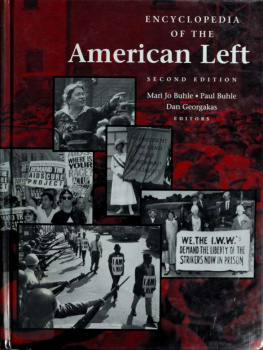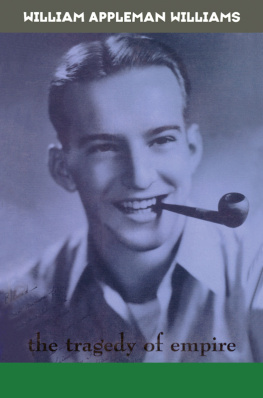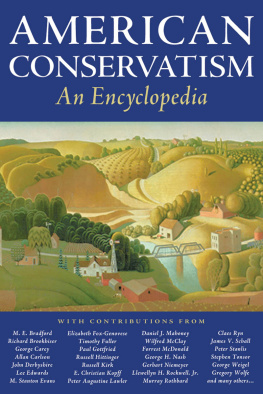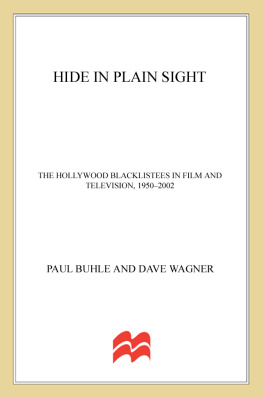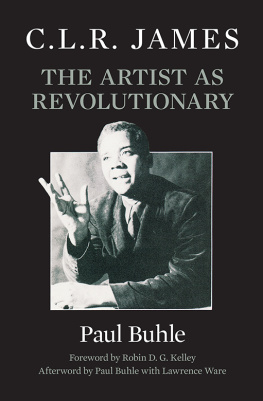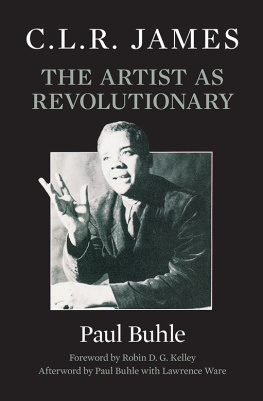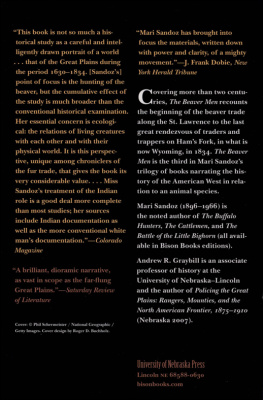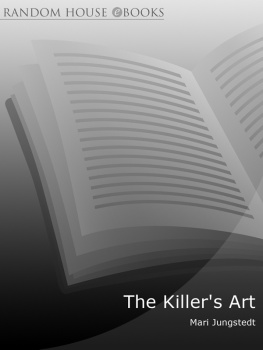Mari Jo Buhle - Encyclopedia of the American Left
Here you can read online Mari Jo Buhle - Encyclopedia of the American Left full text of the book (entire story) in english for free. Download pdf and epub, get meaning, cover and reviews about this ebook. year: 1998, publisher: Oxford University Press, genre: History. Description of the work, (preface) as well as reviews are available. Best literature library LitArk.com created for fans of good reading and offers a wide selection of genres:
Romance novel
Science fiction
Adventure
Detective
Science
History
Home and family
Prose
Art
Politics
Computer
Non-fiction
Religion
Business
Children
Humor
Choose a favorite category and find really read worthwhile books. Enjoy immersion in the world of imagination, feel the emotions of the characters or learn something new for yourself, make an fascinating discovery.
- Book:Encyclopedia of the American Left
- Author:
- Publisher:Oxford University Press
- Genre:
- Year:1998
- Rating:5 / 5
- Favourites:Add to favourites
- Your mark:
- 100
- 1
- 2
- 3
- 4
- 5
Encyclopedia of the American Left: summary, description and annotation
We offer to read an annotation, description, summary or preface (depends on what the author of the book "Encyclopedia of the American Left" wrote himself). If you haven't found the necessary information about the book — write in the comments, we will try to find it.
Encyclopedia of the American Left — read online for free the complete book (whole text) full work
Below is the text of the book, divided by pages. System saving the place of the last page read, allows you to conveniently read the book "Encyclopedia of the American Left" online for free, without having to search again every time where you left off. Put a bookmark, and you can go to the page where you finished reading at any time.
Font size:
Interval:
Bookmark:

This book made available by the Internet Archive.





PREFACE TO THE SECOND EDITION
THIS VOLUME IS A REVISED AND EXPANDED EDITION OF THE FIRST COMPREHENSIVE
reference work on the history of the American Left to be published. This edition is approximately one-quarter larger than the original, with more than seventy new articles. One entirely new area of coverage consists of entries on the pre-Civil War movements that had the greatest long-term effects on the formation of the post-Civil War Left. Other new articles deal with reformers and reform groups previously dealt with only in passing in the earlier edition. These include entries covering such topics as the Greenback Labor Party, Henry George, the Knights of Labor, and Robert La Follette. In addition, more contemporary figures, such as Tom Hayden and William Kunstler, have been given individual entries.
We have also both enriched and consolidated numerous subject areas already covered in the first edition. The majority of these changes affects the encyclopedia's coverage of the arts. New articles with extensive bibliographies have been commissioned covering writers of science fiction and fantasy, authors of popular fiction, and poets. New material has also been provided on film and television writers and directors. Treatment of ethnic groups has been expanded, with nearly a dozen new entries. All ongoing movements and trends have been unpdated, and bibliographies for most articles have been expanded to include recent scholarship. Some entries have undergone considerable revision and rewriting to take into account new scholarship.
Additional features have been added to make the encyclopedia more user-friendly We have included a new directory of contributors showing updated information on all authors. We have significantly expanded the system of cross-referencing. Readers will find both more blind entries, directing the reader to inverted forms or alternative spellings of entry terms, as well as more end-of-article cross-references, suggesting that the reader consult other articles in the encyclopedia for further related information on the topic at hand. Although we included more than thirty individual entries on African Americans and Jewish Americans in the previous edition, we did not incorporate a formal essay on either group. This edition contains overview articles on both groups that serve as guides to more specific entries on these groups.
Although we have incorporated many enrichments and additions into this new edition, we have retained our emphasis on the radical rather than reformist sector of the American Left. This decision is not meant to imply that the broad American constituency for social change consists only of radicals, or that this broad
PREFACE TO THE SECOND EDITION
constituency is in any way less important than the more radical elements of the American Left. Our purpose in limiting our coverage is practical rather than ideological: we simply wish to give maximum attention to a vital segment of our political tradition that is routinely ignored or devalued. For this purpose, we have defined reformers as those who believe serious political, social, and economic change can be accommodated into the existing capitalist system and that attaining a viable egalitarian society is primarily a national rather than an international imperative.
For assistance in a variety of ways, such as supplying graphics, suggesting contributors, responding to urgent requests for an entry, criticizing or rewriting drafts, acting as computer consultant, advising with promotions, and contributing entries that did not reach publication, we thank David Montgomery, Linda Gordon, Allen Hunter, Eric Perkins, Elliot Shore, Philip Altbach, Jay Kinney, Immanuel Wallerstein, Ethelbert Miller, Roger Horowitz, Enzo Traverso, Marvin Gettleman, Richard Ellington, Sue Benson, Rebecca Zurier, Dorothy Healey, Morris U. Schappes, Paul Le Blanc, Kate Monteiro, George Scialabba, Gil Green, Mary Boger, Scott Molloy, Chuck Schwartz, Saul Wellman, Max Gordon, Herman Benson, Jack N. Porter, David Roediger, Robert G. Lee, Steve Brier, Michael Smith, Staphanie Ogle, Norma Fain Pratt, Michael Honey, and H. L. Mitchell. For technical assistance, we thank the staff of the Main Branch of the Brooklyn Public Library, and for their help on illustrations, we thank the Charles H. Kerr Publishing Company. Special thanks are due to Kennie Lyman for her guidance on the first edition and to Mark Herlihy for indexing the present edition. We are also grateful to the staff of the Scholarly and Professional Reference Division at Oxford University Press for guidance and support during the preparation of this second edition.
Mari Jo Buhle, Paul Buhle, and Dan Georgakas
PREFACE TO THE FIRST EDITION
THIS VOLUME IS THE FIRST COMPREHENSIVE REFERENCE WORK ON THE HISTORY OF THE American Left. Defined as that segment of society that has sought fundamental changes in the economic, political, and cultural systems, the subject does not include reformers who believe that change can be accommodated to existing capitalist structures, or who believe that an egalitarian society can be attained ultimately within national borders. By placing a strong emphasis upon radicalsanarchists, socialists, and communiststhe Encyclopedia of the American Left has been able to delve into many topics that are otherwise little known or that are frequently discussed without relation to their actual Left context.
Histories of the United States have, until the 1960s and 1970s, generally treated radical movements and radicals unfavorably (save perhaps as eccentric personalities). By contrasting the Left with more acceptable reform movements and reformers, standard treatments suggested an unpleasant fanaticism, or at least a lack of basic patriotism toward American institutions. Aside from a handful of valuable memoirs and a scattering of monographs, few serious accounts of radicals themselves could be found. Not surprisingly, serious gaps existed in basic reference materials relating to Left topics.
Our project would, therefore, have been impossible only a generation ago. Two contemporary intellectual developments changed the picture. Many activists with peak years of involvement before World War II turned to writing memoirs, often donating their personal papers to existing archives. The waning of McCarthyism and its threats of political intimidation encouraged individuals and organizational leaders to be more specific and candid about past events. Concurrently, many scholars who had come of age within the 1960s political movements embarked upon academic careers or began working as filmmakers, curators, archivists, or librarians. Many of these younger scholars selected radical movements of the past, including the controversial and many-sided history of the Communist Party, as their scholarly specialities.
The newer scholars merged, for the first time, techniques such as oral history with the fresh insights available from feminist, ethnic, and racial studies and popular culture analyses. Combined in turn with traditional scholarly approaches, these efforts produced a substantial recovery of a hitherto lost history, in definitive biographies, monographs, and popular works of various kinds. The present volume draws heavily upon this current. But it also grows out of the neglected
Font size:
Interval:
Bookmark:
Similar books «Encyclopedia of the American Left»
Look at similar books to Encyclopedia of the American Left. We have selected literature similar in name and meaning in the hope of providing readers with more options to find new, interesting, not yet read works.
Discussion, reviews of the book Encyclopedia of the American Left and just readers' own opinions. Leave your comments, write what you think about the work, its meaning or the main characters. Specify what exactly you liked and what you didn't like, and why you think so.

